Marina Sena & Çantamarta – Doçura Lyrics
[Letra de “Doçura”]
[Verso 1: Marina Sena]
Já caiu a noite, a noite escura
Traz uma cachaça pra essa noite escura
Eu quero essa cura, eu quero essa cura
Eu quero essa cura, eu quero essa cura
E essa chuva, chuva
Eu que sou a praga e também sou a cura
Traz uma cachaça pra essa noite escura
Traz algo gelado pro calor que dura
[Refrão: Marina Sena]
Essa doçura é minha cura
Esse mel arranca sua amargura
Não jogue jamais contra o meu velho giro
Ventos e batuques na beira do rio
[Pós-Refrão: Zé Coco do Riachão]
Óia lá, boi andou
Óia lá, boi andou
Óia lá, boi andou
Óia lá, boi andou
[Verso 2: LuisLo]
De la tierra, piel canela, Víctor Piñero, apágame la vela
La historia pertenece a quien la cuenta, você, pra mim, é coisa de novela
Uh, fluyo por los mares como un pez espa’, secreto en la puñala’
A mis espaldas el apoyo de la Nacional, rango, uh, Aureliano, soy el general
Momposina, noche oscura, una pirueta, una figura
Todas las maldades me las cura, claro de luz, claro de luna
Momposina, noche oscura, una pirueta, una figura
Todas las maldades me las cura, claro de luz, claro de luna
Já caiu a noite, a noite escura
Traz uma cachaça pra essa noite escura
Eu quero essa cura, eu quero essa cura
Eu quero essa cura, eu quero essa cura
E essa chuva, chuva
Eu que sou a praga e também sou a cura
Traz uma cachaça pra essa noite escura
Traz algo gelado pro calor que dura[Refrão: Marina Sena]
Essa doçura é minha cura
Esse mel arranca sua amargura
Não jogue jamais contra o meu velho giro
Ventos e batuques na beira do rio
[Pós-Refrão: Zé Coco do Riachão]
Óia lá, boi andou
Óia lá, boi andou
Óia lá, boi andou
Óia lá, boi andou
Marina Sena & Çantamarta – “Doçura”
Song Details
- Title: Doçura
- Artists: Marina Sena & Çantamarta (feat. Zé Coco do Riachão & LuisLo)
- Genre: Brazilian Popular Music (MPB), Latin, Afrobeat Influences
- Release Year: 2023
- Language: Portuguese & Spanish
- Themes: Healing, Mysticism, Love, Nature, Ancestry
- Mood: Hypnotic, Earthy, Ritualistic
In-Depth Lyric Analysis
Verse 1 (Marina Sena)
- “Já caiu a noite, a noite escura”
- The song opens with imagery of the night, setting a mystical and ritualistic tone.
- The “noite escura” (dark night) can symbolize loneliness, sadness, or even a spiritual transition.
- “Traz uma cachaça pra essa noite escura”
- Cachaça, a Brazilian sugarcane liquor, is invoked as a symbol of warmth, relief, or celebration.
- It represents a way to cope with darkness or emotional struggles.
- “Eu quero essa cura, eu quero essa cura”
- The narrator seeks healing, emphasizing it through repetition.
- The idea of “cura” (cure) suggests that the song is about finding solace, whether through love, music, or nature.
- “E essa chuva, chuva”
- Rain is another symbol of renewal and cleansing.
- This connects to the theme of nature being a source of healing.
- “Eu que sou a praga e também sou a cura”
- This line is powerful and paradoxical—the narrator describes themselves as both the affliction and the remedy.
- It suggests duality in human nature, where people can be both chaotic and restorative, destructive and nurturing.
- “Traz algo gelado pro calor que dura”
- This could symbolize a need for balance, suggesting that while passion and fire burn within, there’s also a desire for coolness and tranquility.
Chorus (Marina Sena)
- “Essa doçura é minha cura”
- “Doçura” (sweetness) is metaphorically linked to love, pleasure, or joy.
- The narrator sees sweetness as a form of healing, reinforcing the contrast between bitterness (pain) and sweetness (love or happiness).
- “Esse mel arranca sua amargura”
- Honey is used as a metaphor for something soothing and enriching.
- It acts as an antidote to bitterness, reinforcing the idea that love, music, or ritual can cleanse negative emotions.
- “Não jogue jamais contra o meu velho giro”
- “Giro” can refer to a spiritual movement, a dance, or a life cycle.
- This suggests a deep-rooted cultural or ritualistic tradition that should not be interrupted or challenged.
- “Ventos e batuques na beira do rio”
- Wind and percussion (batuques) at the river’s edge evoke a spiritual or ritualistic connection to nature.
- Rivers are symbolic of life, flow, and transformation, reinforcing themes of renewal.
Post-Chorus (Zé Coco do Riachão)
- “Óia lá, boi andou” (Repeated)
- This phrase references Afro-Brazilian folk traditions, particularly Bumba Meu Boi, a cultural festival in Brazil.
- The phrase suggests movement, progress, or transformation.
- It also adds an ancestral and folkloric element to the song, grounding it in Brazilian tradition.
Verse 2 (LuisLo – Spanish Lyrics)
- “De la tierra, piel canela, Víctor Piñero, apágame la vela”
- The opening lines honor Latin American roots, referencing Víctor Piñero, a Venezuelan musician known for tropical music.
- “Apágame la vela” (blow out my candle) could symbolize desire, passion, or even the end of suffering.
- “La historia pertenece a quien la cuenta, você, pra mim, é coisa de novela”
- A poetic reflection on how stories belong to those who tell them, reinforcing storytelling as a form of legacy.
- “Você, pra mim, é coisa de novela” (You, to me, are like a soap opera) compares love or life to a dramatic, passionate story.
- “Uh, fluyo por los mares como un pez espa’, secreto en la puñala'”
- The ocean imagery is back, linking to fluidity, freedom, and mystery.
- “Secreto en la puñala’” (secret in the dagger) suggests hidden pain, betrayal, or power.
- “Momposina, noche oscura, una pirueta, una figura”
- “Momposina” refers to Totó la Momposina, a Colombian singer known for preserving Afro-Indigenous musical traditions.
- Again, the “noche oscura” (dark night) returns, reinforcing themes of mystery and transformation.
- “Todas las maldades me las cura, claro de luz, claro de luna”
- “All evils are cured by it”—a direct reaffirmation of healing through music, love, or ritual.
- “Claro de luz, claro de luna” (clarity of light, clarity of the moon) reinforces balance and illumination.
Song Meaning
“Doçura” is a song about seeking healing, embracing rituals, and surrendering to the transformative power of love, music, and nature. The lyrics mix Brazilian and Latin American cultural elements, creating an atmosphere of mysticism, tradition, and rhythm.
The song carries dual themes:
- Darkness & Healing – The “noite escura” represents struggles, while doçura (sweetness) and rituals (batuques, rivers, nature) bring renewal.
- Love as a Cure – Love is compared to honey, music, and movement, acting as a remedy for bitterness and suffering.
- Nature & Ancestry – References to wind, rivers, rain, and traditional chants root the song in Afro-Brazilian and Indigenous spirituality.
By combining modern poetic lyricism with traditional sounds, “Doçura” feels like a spiritual chant, a love song, and an homage to ancestry all at once.
FAQs (Frequently Asked Questions)
1. What does “Doçura” mean?
“Doçura” translates to “Sweetness”, symbolizing love, healing, and comfort in the song.
2. What is the meaning behind “Óia lá, boi andou”?
This is a folk chant from Brazilian traditions like Bumba Meu Boi, signifying movement, progress, or a connection to ancestry.
3. What does “Eu que sou a praga e também sou a cura” mean?
It means “I am both the plague and the cure”, suggesting self-awareness of one’s duality—being both chaotic and restorative.
4. What is the role of LuisLo’s Spanish verse?
LuisLo’s lyrics bring in Latin American influences, referencing Caribbean music legends and mysticism to complement Marina Sena’s themes.
5. Why does the song use nature imagery (rain, rivers, wind)?
Nature is often used in Brazilian and Latin music as a symbol of renewal, emotion, and ancestral connection, reinforcing the ritualistic feel of the song.
Conclusion
“Doçura” is a mesmerizing blend of spirituality, sensuality, and ancestry, using poetic metaphors, Afro-Latin influences, and folk elements to tell a story of healing and transformation.
By weaving themes of darkness, love, and renewal, Marina Sena & Çantamarta craft a song that feels like a modern ritual—both intimate and ancestral. Whether through music, love, or nature, the message is clear: sweetness is the cure for life’s bitterness.

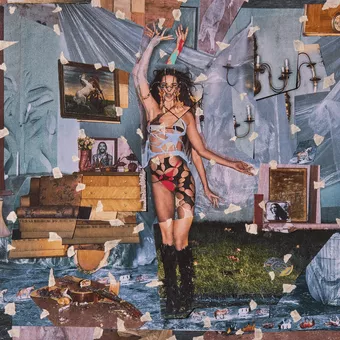
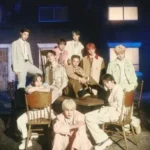
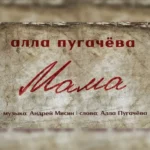
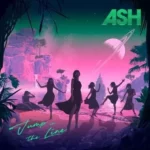

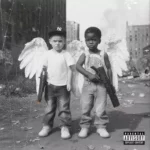
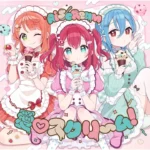
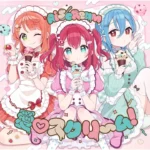
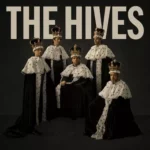
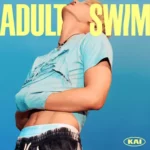

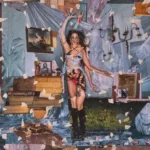
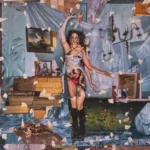
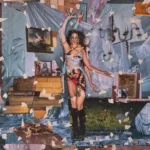
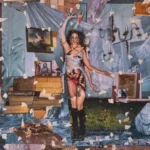
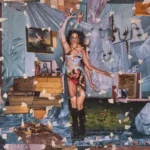
Leave a Reply